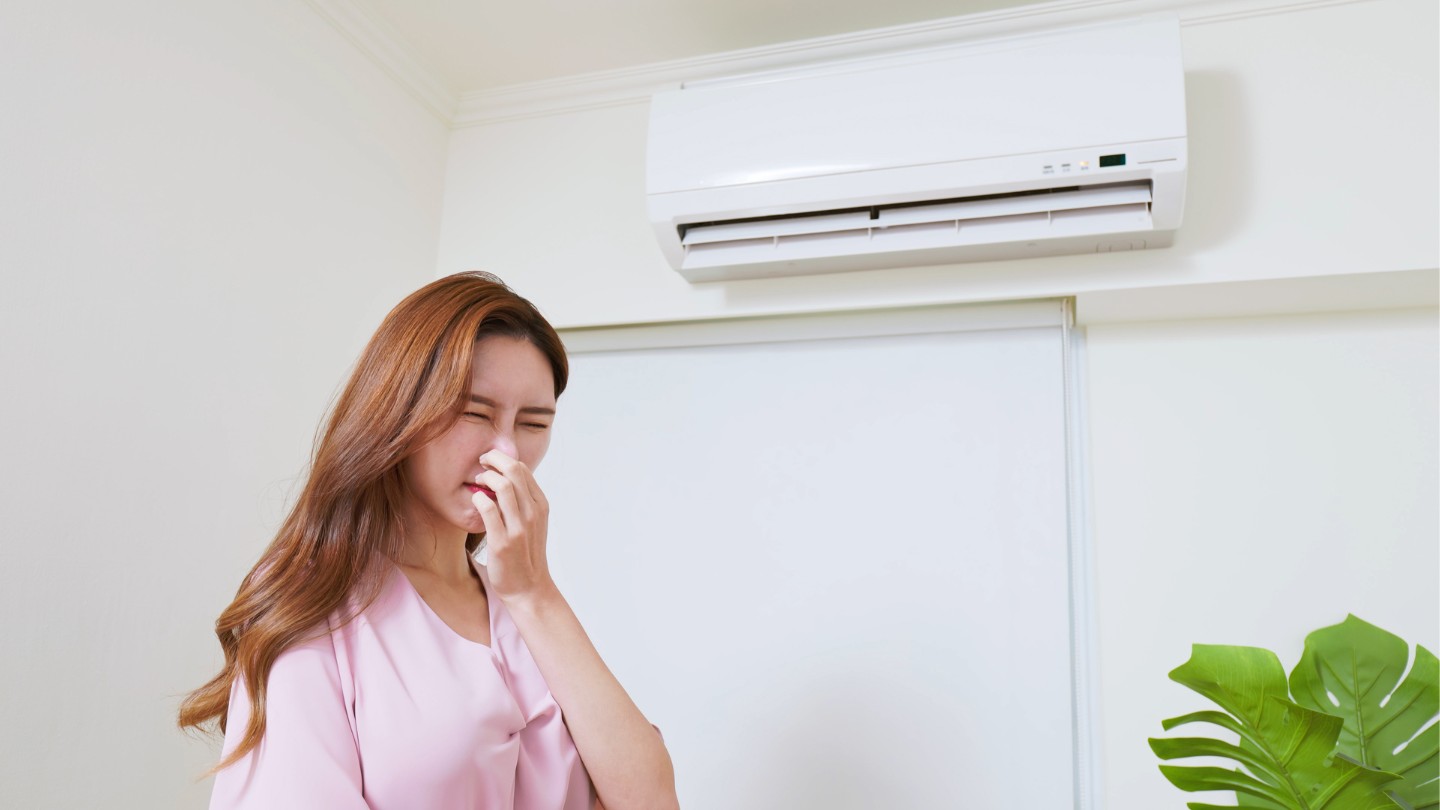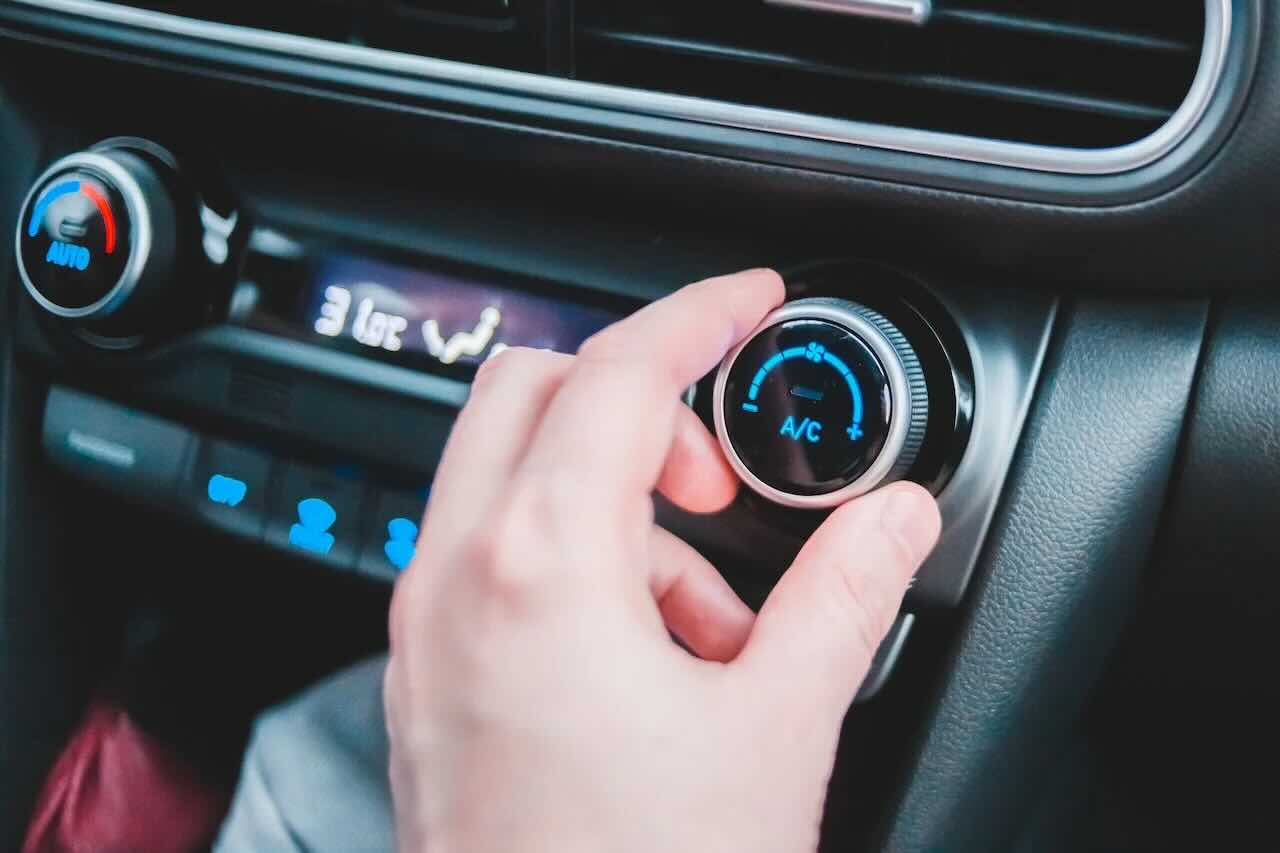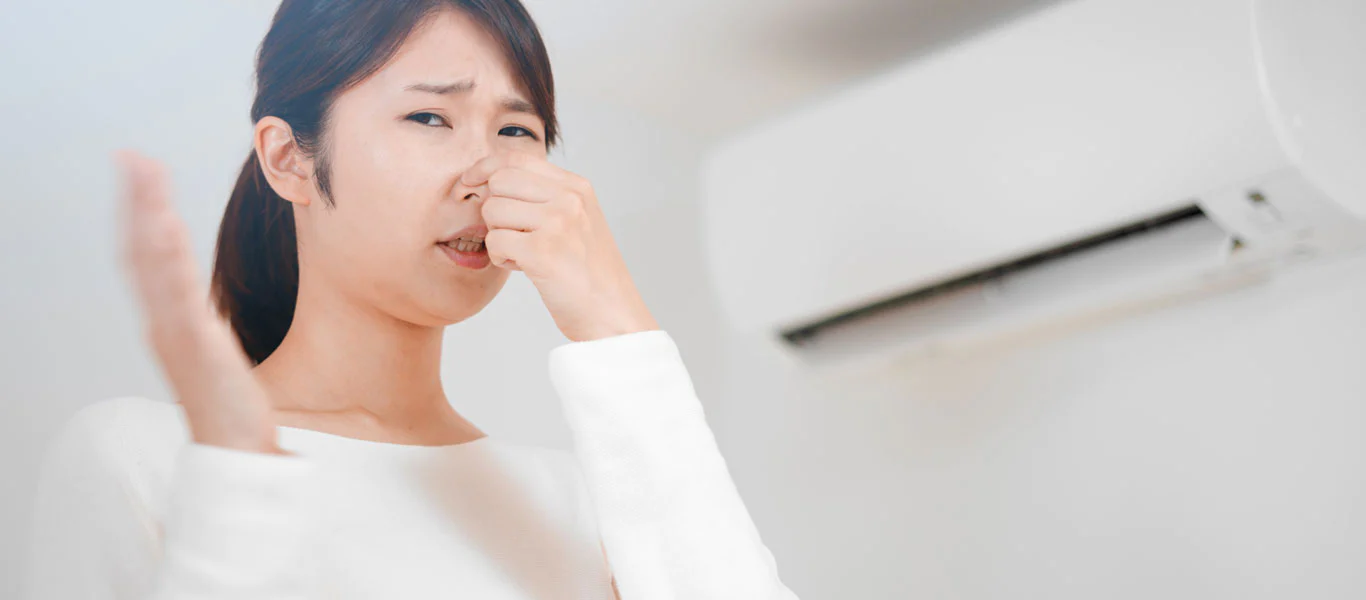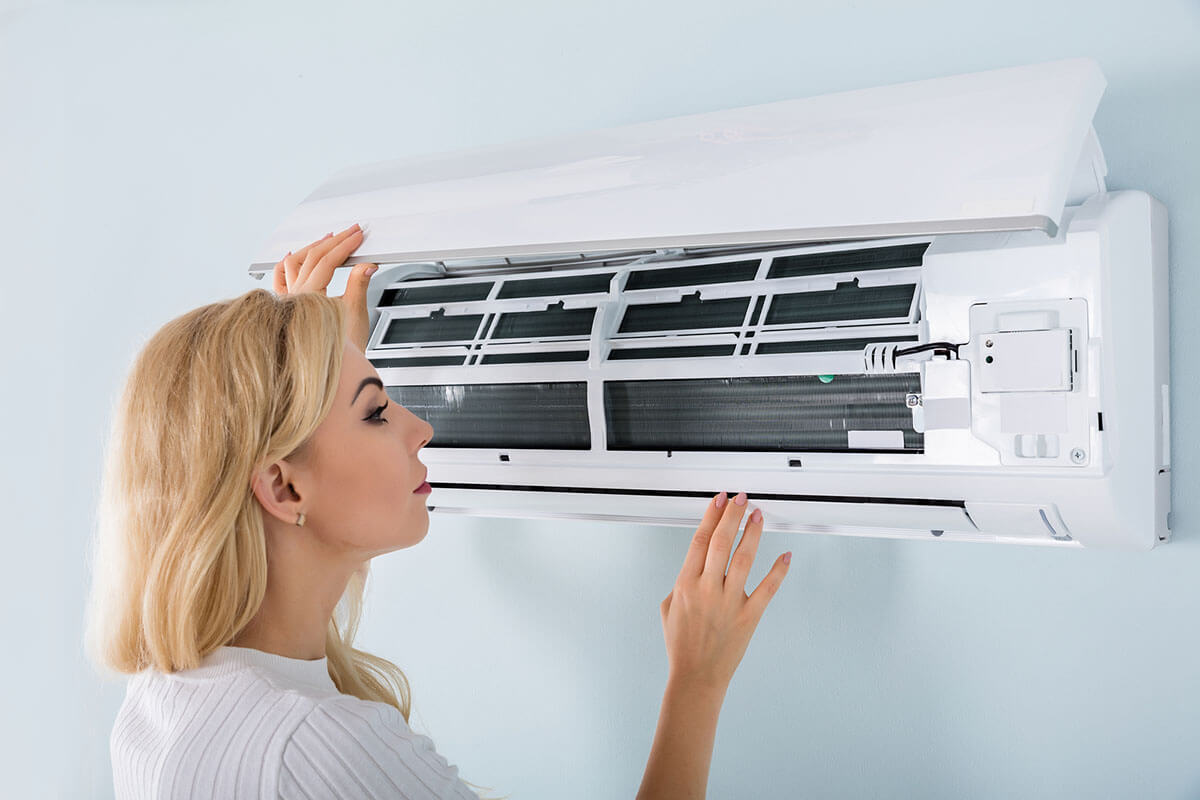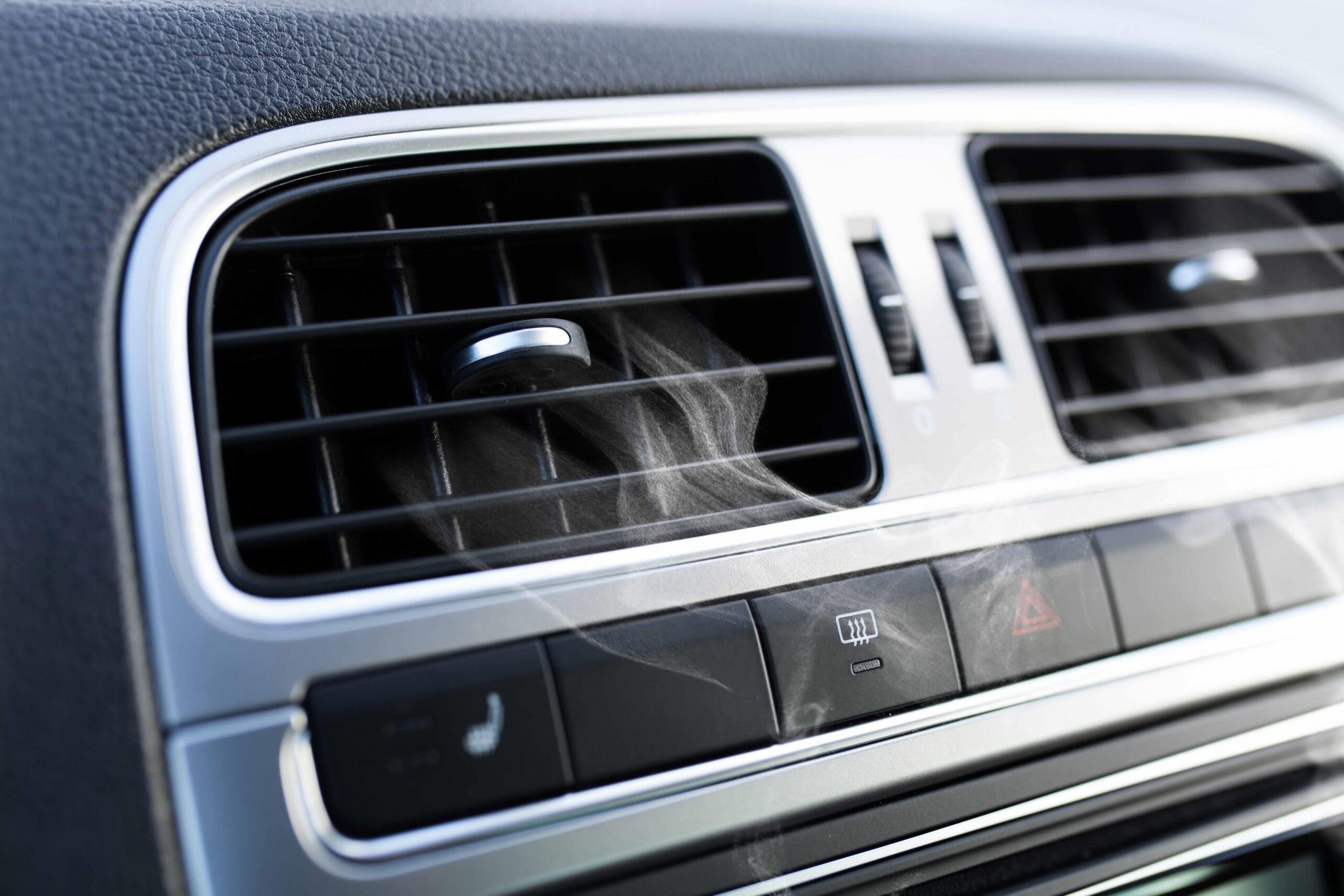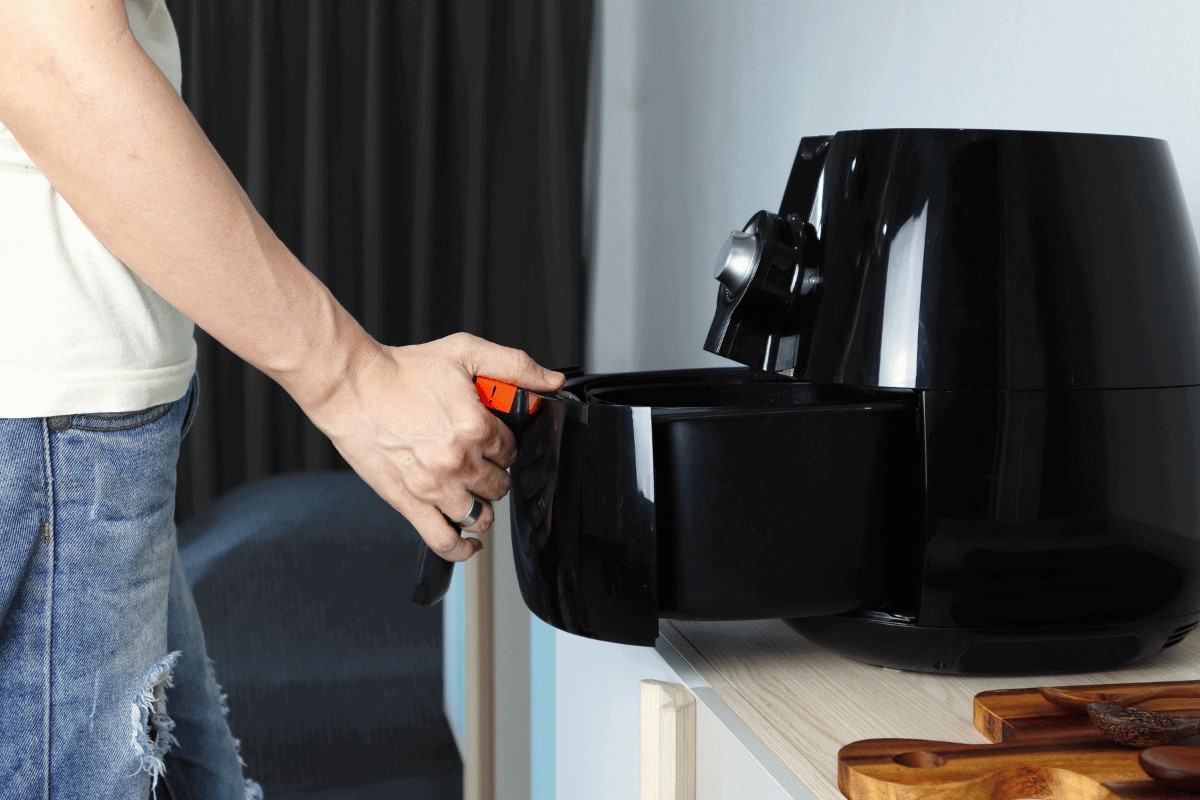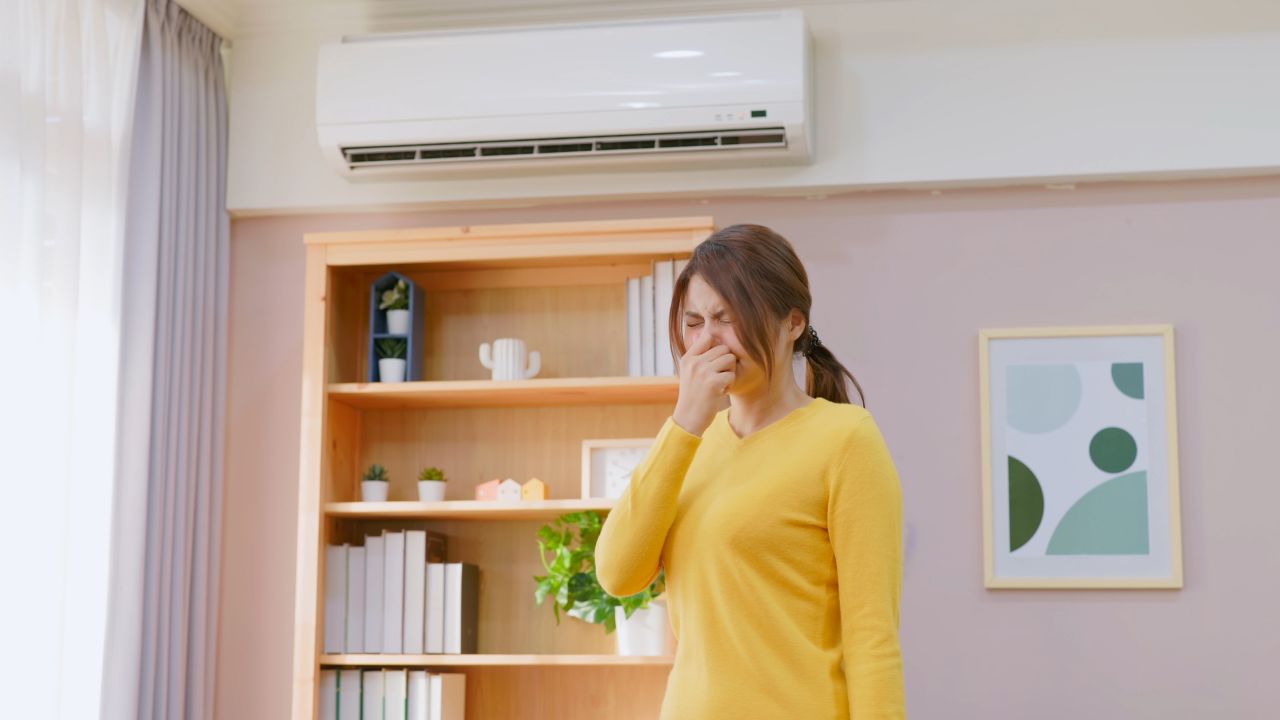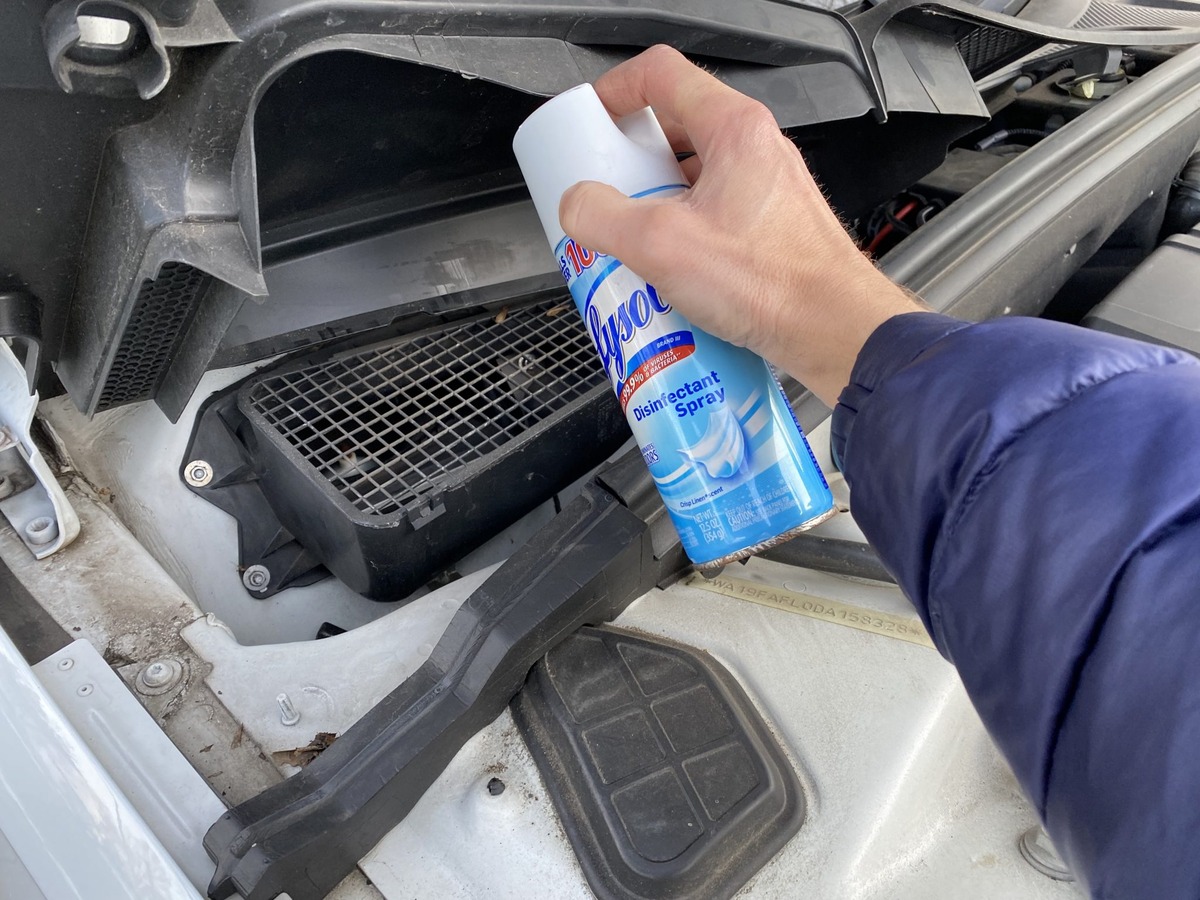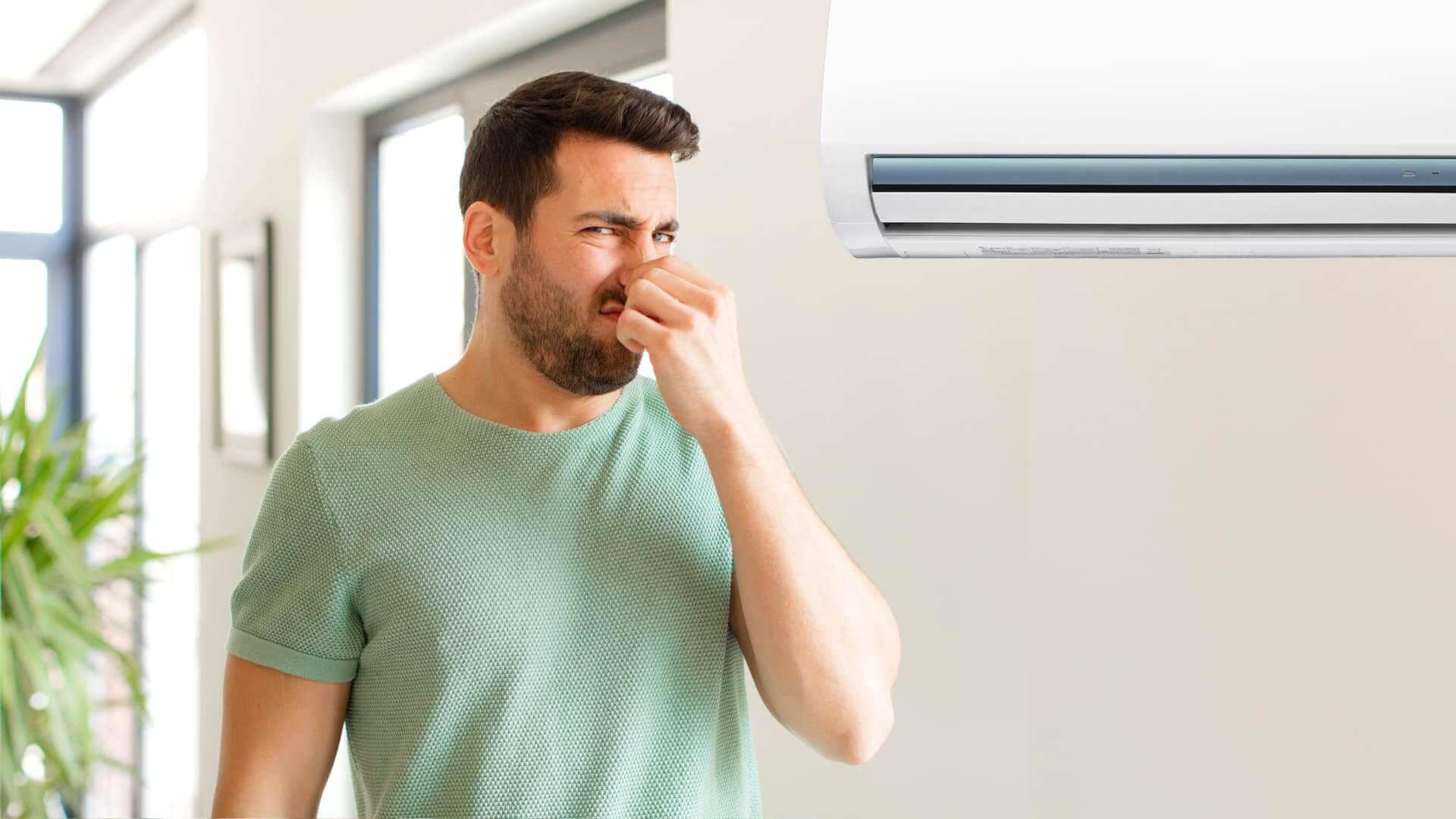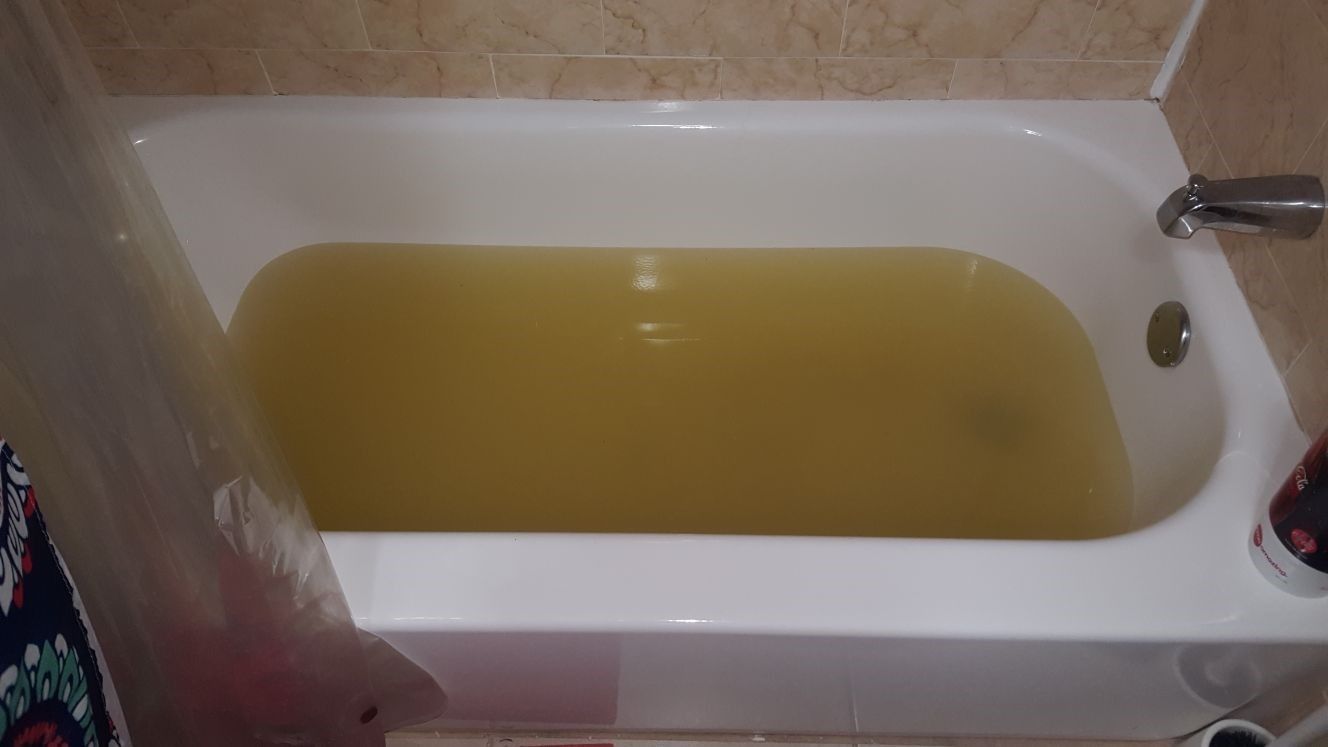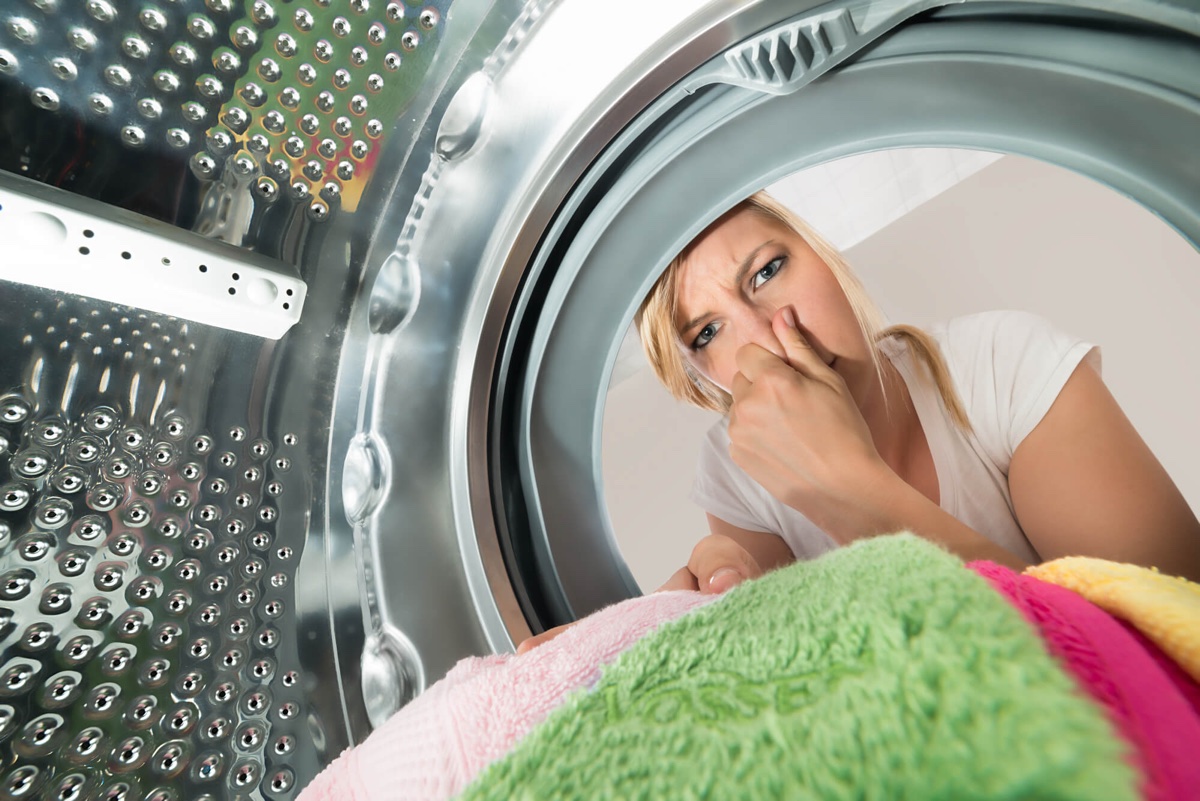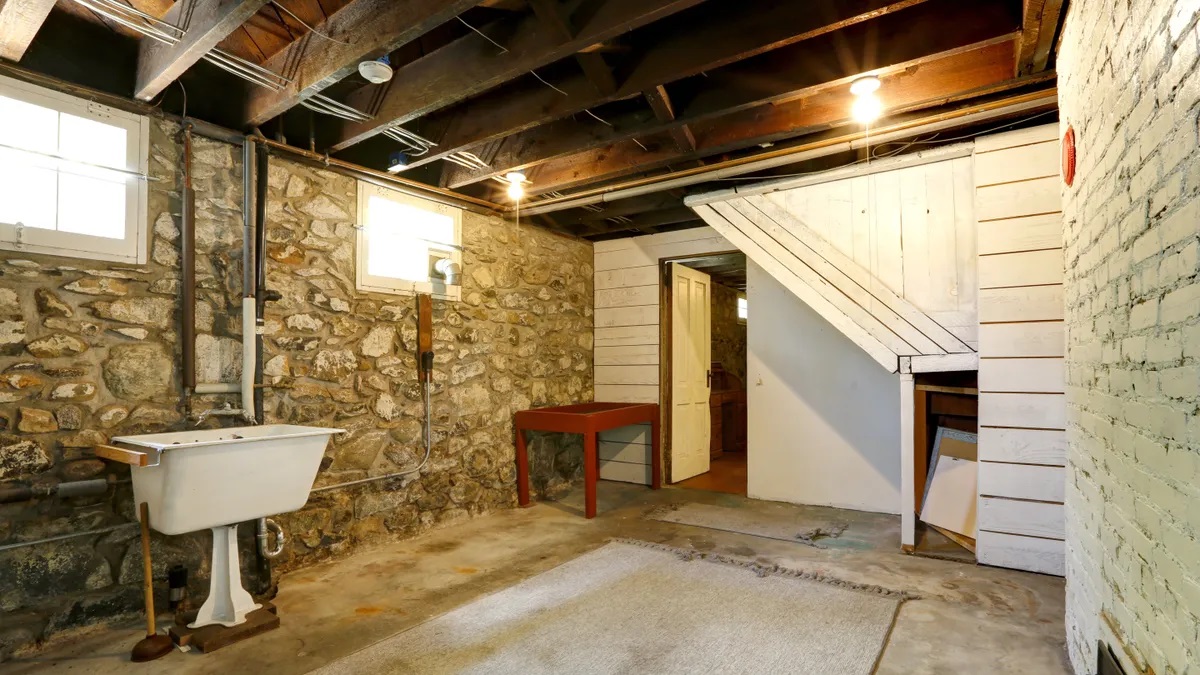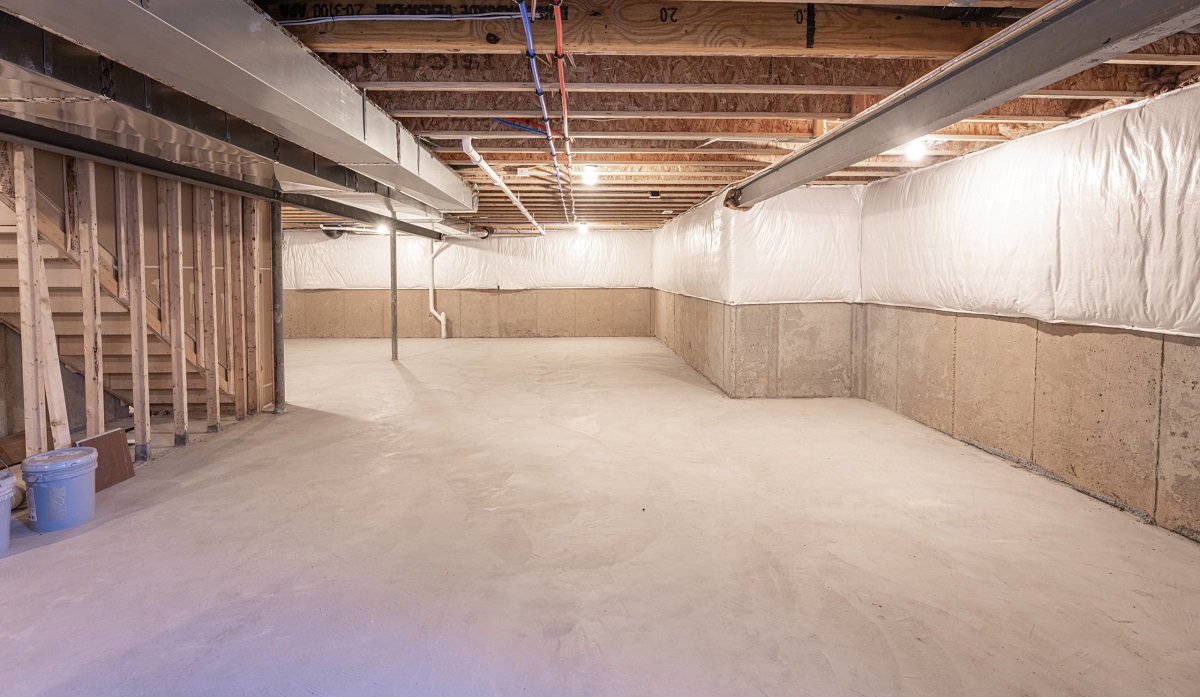Home>Home Maintenance>Why Does My Air Conditioner Smell Like Pee


Home Maintenance
Why Does My Air Conditioner Smell Like Pee
Modified: March 7, 2024
Learn why your air conditioner may smell like pee and how to fix it with home maintenance tips.
(Many of the links in this article redirect to a specific reviewed product. Your purchase of these products through affiliate links helps to generate commission for Storables.com, at no extra cost. Learn more)
Introduction
As the temperature rises, nothing feels better than stepping into a cool, air-conditioned home. However, what do you do when your once refreshing air conditioner starts emitting a foul odor reminiscent of urine?
Having a foul smell coming from your air conditioner can be quite unsettling. Not only does it make your living space unpleasant, but it can also have a negative impact on your indoor air quality. In order to effectively address this issue, it’s important to understand the common causes behind the foul odor.
In this article, we will explore the reasons why your air conditioner may smell like pee and provide you with prevention and remedies to eliminate the odor and restore fresh and clean air in your home.
Key Takeaways:
- Keep your air conditioner smelling fresh by regularly cleaning and maintaining it to prevent mold, bacteria, and animal infestations that cause unpleasant odors.
- Address any pee-like smell from your air conditioner promptly by consulting a professional technician to diagnose and resolve the issue for a comfortable and odor-free home.
Common Causes of Air Conditioner Odor
Before we delve into the specific reasons why your air conditioner may emit a pee-like smell, let’s first explore the common causes of air conditioner odor. Understanding these causes will help you pinpoint the source of the unpleasant smell and take appropriate measures to address it.
1. Mold and Mildew Growth: One of the most common culprits behind air conditioner odor is the growth of mold and mildew. Air conditioners create a cool, damp environment that is conducive to mold and mildew growth. The moisture in the system’s components, such as the evaporator coil and drip pan, can accumulate and become a breeding ground for these microorganisms. As they multiply, they release a musty odor that can permeate your home.
2. Bacterial Growth: Similar to mold and mildew, the presence of bacteria in your air conditioner can also lead to unpleasant odors. Bacteria thrive in warm and moist conditions, and the cooling coils and condensate drain pan provide the perfect environment for their growth. As bacteria multiply, they release volatile substances that contribute to the foul smell.
3. Animal Infestation: Another potential cause of air conditioner odor is the presence of animals or pests in your unit. Birds, rodents, or insects can build nests or leave droppings in your air conditioner, resulting in a distinct odor that resembles urine. If you suspect an animal infestation, it’s essential to address the issue promptly and safely to eliminate the odor and prevent further damage to your system.
Now that we understand the common causes of air conditioner odor, let’s dive deeper into the specific reasons why your air conditioner may emit a pee-like smell.
Mold and Mildew Growth in Air Conditioner
One of the primary reasons why your air conditioner may emit a pee-like smell is the growth of mold and mildew. These microorganisms thrive in dark, damp environments, making your air conditioner an ideal breeding ground.
Mold and mildew growth in your air conditioner can occur due to various factors, including inadequate maintenance, high humidity levels, or a clogged drainage system. When moisture accumulates in the system’s components, such as the evaporator coil or drip pan, it creates a perfect environment for mold and mildew spores to settle and reproduce.
The presence of mold and mildew in your air conditioner not only leads to an unpleasant smell but also poses health risks. Breathing in mold spores can cause allergic reactions, respiratory issues, and exacerbate existing conditions such as asthma or allergies.
To tackle mold and mildew growth in your air conditioner, consider the following prevention and remedies:
1. Regular Cleaning and Maintenance: Ensure that you schedule regular cleaning and maintenance for your air conditioner. This includes cleaning or replacing air filters, cleaning the evaporator coil, and clearing any debris from the condensate drain pan or drain line. Regular maintenance will help minimize moisture buildup and prevent mold and mildew growth.
2. Keep Moisture in Check: To prevent mold and mildew growth, it’s crucial to maintain optimal humidity levels in your home. Use dehumidifiers in areas prone to high humidity, such as basements or bathrooms. Additionally, ensure that your air conditioner is properly sized for your home to effectively remove excess moisture from the air.
3. Inspect and Clean Drainage System: Regularly inspect and clean the condensate drain pan and drain line to remove any accumulated dirt or debris. This will prevent clogs and ensure that the moisture is efficiently drained away from the system.
If you suspect significant mold growth in your air conditioner, it’s recommended to seek professional assistance. An HVAC technician can thoroughly clean and disinfect the system to eliminate the mold and restore clean and fresh air in your home.
By taking proactive measures to prevent and address mold and mildew growth in your air conditioner, you can enjoy cool and odor-free air throughout the year.
Bacterial Growth in Air Conditioner
In addition to mold and mildew, another potential cause of a pee-like smell in your air conditioner is the growth of bacteria. Bacteria thrive in warm, moist environments, and the cooling coils and condensate drain pan of your air conditioner provide the perfect conditions for their proliferation.
When bacteria multiply in your air conditioner, they release volatile organic compounds (VOCs) that contribute to the foul odor. In some cases, the odor produced by these bacteria can be similar to that of urine, which can be quite unpleasant and concerning.
To prevent bacterial growth and the associated odor in your air conditioner, consider the following prevention and remedies:
1. Clean and Disinfect Regularly: It’s essential to clean and disinfect your air conditioner regularly to remove any bacteria that may have accumulated. This includes cleaning the cooling coils, drain pan, and other components where moisture can accumulate. Consult your air conditioner’s manual or seek professional assistance for proper cleaning techniques.
2. Ensure Proper Drainage: Proper drainage is crucial in preventing the buildup of excess moisture in the air conditioner, which can promote bacterial growth. Regularly inspect and clean the condensate drain pan and drain line to ensure efficient drainage and prevent stagnant water.
3. Consider UV Lights: Installing ultraviolet (UV) lights in your air conditioning system can help kill bacteria and inhibit their growth. These lights emit UV radiation that destroys the DNA of bacteria, preventing them from reproducing. UV lights are typically installed near the cooling coils, where bacteria tend to thrive.
4. Replace Air Filters: Dirty or clogged air filters can contribute to bacterial growth and the associated odor. Make sure to replace your air filters regularly to maintain proper airflow and prevent bacteria from accumulating in the system.
If you notice a strong and persistent odor resembling urine coming from your air conditioner, it’s advisable to consult a professional HVAC technician. They can assess the situation, identify the cause of the odor, and implement appropriate solutions to eliminate bacterial growth and restore fresh air in your home.
By following these preventive measures and taking prompt action, you can effectively tackle bacterial growth in your air conditioner and ensure a pleasant and odor-free indoor environment.
To get rid of the smell, try cleaning the air conditioner’s evaporator coil and drain pan with a mixture of water and vinegar. This can help eliminate any bacteria causing the odor.
Animal Infestation in Air Conditioner
If your air conditioner emits a pee-like smell, it’s possible that you are dealing with an animal infestation. Birds, rodents, or insects can find their way into your air conditioning unit and create nests, leave droppings, or even die inside the system. These intrusions can result in an unpleasant odor that resembles urine.
An animal infestation in your air conditioner can occur due to various factors, such as small openings or gaps in the unit’s exterior, nearby vegetation providing easy access, or inadequate maintenance and inspection. Animals seeking shelter or attracted to the warmth of the system may find their way into your air conditioner and create a problematic situation.
If you suspect an animal infestation, it’s crucial to address the issue promptly and safely. Here are some steps you can take:
1. Turn off the System: The first step is to turn off your air conditioner to prevent any harm to the animals or further damage to the system.
2. Inspect and Remove: Carefully inspect your air conditioner for signs of animal activity, such as nests, droppings, or debris. If you are comfortable doing so, you can remove any visible signs of the infestation. However, if you encounter a large nest or encounter any potentially dangerous animals, it’s best to contact a professional pest control service to handle the removal.
3. Seal Gaps and Openings: After the infestation has been dealt with, seal any openings or gaps in your air conditioner to prevent future intrusions. Use caulking or weatherstripping to seal gaps around the unit, and consider installing a mesh or screen to cover the exterior openings.
4. Maintenance and Inspection: Regular maintenance and inspection are essential in preventing animal infestations. Schedule routine visits from a professional HVAC technician to inspect your air conditioner, check for any potential entry points, and ensure that the system is functioning optimally.
If you suspect that an animal may have died in your air conditioner, it’s crucial to seek professional assistance to remove the carcass safely and thoroughly clean and disinfect the unit.
By addressing animal infestation promptly and taking preventive measures, you can eliminate the foul odor and ensure that your air conditioner operates efficiently, providing you with clean and refreshing air.
Reasons Behind Pee-like Smell in Air Conditioner
When your air conditioner emits a smell resembling urine, it can be puzzling and unpleasant. However, understanding the specific reasons behind this odor can help you identify and resolve the issue. Here are some possible explanations:
1. Chemical Reaction: In some cases, the smell may not actually be urine-like but rather a result of a chemical reaction within the air conditioning system. When dust, dirt, or debris accumulate on the heat exchanger or other components, they can mix with the condensation created by the cooling process. This interaction can produce a distinct odor that may resemble the smell of urine.
2. Leaking Refrigerant: A refrigerant leak in your air conditioner can also cause a pungent smell that may be mistaken for urine. Refrigerant leaks not only decrease the cooling efficiency of the system but can also harm the environment. If you suspect a refrigerant leak, it’s critical to address it immediately by contacting a professional technician to inspect and repair the system.
3. Blocked Drainage System: When the condensate drain line or drain pan becomes clogged or blocked, stagnant water can accumulate in the air conditioner. This stagnant water can foster the growth of bacteria, mold, or mildew, resulting in a foul odor that resembles urine. Regularly cleaning and maintaining the drainage system is crucial to prevent this issue.
4. Residual Odor from Contaminants: If your air conditioner recently experienced an animal infestation, bacteria or mold growth, or any other source of odor, it’s possible that the smell is lingering even after the problem has been addressed. In such cases, it may take some time for the residual odor to dissipate completely.
To identify the specific cause of the pee-like smell in your air conditioner, it is recommended to contact a professional HVAC technician. They have the expertise to assess the situation, inspect the system thoroughly, and provide the necessary remedies.
Remember, regular maintenance, cleaning, and inspections are crucial for maintaining a healthy and odor-free air conditioning system. By addressing any issues promptly and taking preventive measures, you can enjoy a fresh and comfortable indoor environment.
Prevention and Remedies for Air Conditioner Odor
Dealing with an unpleasant odor from your air conditioner can be bothersome, but fortunately, there are several preventive measures and remedies you can take to eliminate the odor and keep your air conditioner smelling fresh. Here are some effective strategies:
1. Regular Cleaning and Maintenance: Implement a regular cleaning and maintenance routine for your air conditioner. This includes cleaning or replacing air filters every 1-3 months, cleaning the evaporator coils, and removing any debris from the condensate drain pan and drain line. Regular maintenance helps prevent the buildup of mold, bacteria, and other contaminants that can cause unpleasant odors.
2. Ensure Proper Drainage: To avoid moisture accumulation and prevent mold or bacterial growth, it’s crucial to ensure proper drainage. Regularly inspect and clean the condensate drain pan and drain line to keep the system free of stagnant water. Consider using a wet/dry vacuum or a pipe brush to clear any clogs or buildup in the drain line.
3. Control Humidity Levels: Maintaining optimal humidity levels in your home can prevent mold and mildew growth, which can contribute to unpleasant odors. Use dehumidifiers in areas prone to high humidity, such as basements or bathrooms. Additionally, ensure that your air conditioner is properly sized for your home to effectively remove excess moisture from the air.
4. Use Air Purifiers: Installing air purifiers or air sanitizers in your home can help remove odors and improve indoor air quality. These devices can effectively eliminate airborne contaminants, including bacteria, mold spores, and volatile organic compounds that contribute to unpleasant smells.
5. Consider UV Lights: UV lights installed in your air conditioning system can help kill bacteria, mold, and mildew, reducing the chances of foul odors. The UV lights emit radiation that destroys the DNA of these microorganisms, preventing their growth and replication.
6. Address Animal Infestations Promptly: If you suspect or come across an animal infestation in your air conditioner, it’s important to address it promptly. Safely remove any nests, droppings, or carcasses, and seal any openings or gaps to prevent future intrusions. Contact a professional pest control service if needed.
If the odor persists despite your best efforts, it’s advisable to contact a professional HVAC technician. They can perform a comprehensive inspection of your air conditioner, diagnose the underlying issue, and provide appropriate solutions.
By following these preventive measures and remedies, you can ensure that your air conditioner remains odor-free, promoting a fresh and comfortable indoor environment for you and your family.
Conclusion
An unpleasant odor coming from your air conditioner can be a source of frustration and discomfort. Whether it resembles urine or has a different unpleasant smell, understanding the common causes and taking preventive measures can help alleviate the issue and maintain a fresh and clean indoor environment.
In this article, we discussed the common causes of air conditioner odor, including mold and mildew growth, bacterial growth, and animal infestations. We also explored the specific reasons behind a pee-like smell in your air conditioner, such as chemical reactions, leaking refrigerant, blocked drainage systems, or residual odor from contaminants.
To prevent and address air conditioner odor, it is essential to implement regular cleaning and maintenance practices for your system. This includes cleaning or replacing air filters, inspecting and cleaning the condensate drain pan and drain line, and ensuring proper drainage to avoid moisture buildup. Additionally, controlling humidity levels, using air purifiers or UV lights, and addressing animal infestations promptly can help eliminate unpleasant odors.
If you continue to experience persistent and strong odors or are unsure about the source of the smell, it is best to consult a professional HVAC technician. They have the expertise to diagnose the issue, provide accurate solutions, and ensure the optimal performance of your air conditioner.
Remember, a well-maintained and odor-free air conditioner not only provides comfort but also contributes to better indoor air quality and overall well-being. By taking preventive measures and promptly addressing any issues, you can enjoy a refreshing and pleasant environment in your home.
So, if you notice that your air conditioner smells like pee, don’t ignore it. Take action! Follow the steps outlined in this article to identify the cause and implement the necessary remedies. With proper care and maintenance, you can restore clean and fresh air in your home and enjoy the cool comfort of your air conditioner once again.
Frequently Asked Questions about Why Does My Air Conditioner Smell Like Pee
Was this page helpful?
At Storables.com, we guarantee accurate and reliable information. Our content, validated by Expert Board Contributors, is crafted following stringent Editorial Policies. We're committed to providing you with well-researched, expert-backed insights for all your informational needs.
